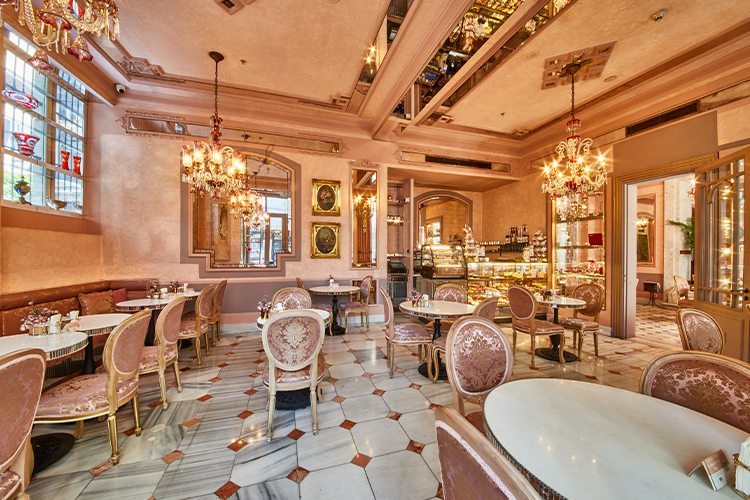Special Ramadan Traditions From Ottoman Era to Present
Ramadan in the Ottoman Empire always had a special place. Tolerance and peace were felt more strongly in this month. Ramazan, the sultan of 11 months, was therefore expected to be excited. Existing traditions were the best representatives of tolerance and peace. Here are unique Ramadan traditions from Ottoman to the present.
“Remove His Debts… May Allah Accepts”
During the Ottoman period, the rich people used to go to shops such as grocery stores and open debt books to collect their debts to the store owner. There were debts written in these books. During the Ramadan month, the rich person goes to the store opens a random page of that book and pays the debt of a random person while saying “Remove His Debts… Ma Allah Accepts”. This was a tradition to help the poor during holy days of Ramadan. The person who paid the debt did not know whose debt he paid; also the person whose debt is paid did not know who paid his debt.
Whoever heralds the crescent, was rewarded with 150 cents

In the time of the Ottoman Empire, it would not be entirely clear when Ramadan would begin and end. So that the beginning of the month of Ramadan to be notified of the moonrise was expected. For this reason, some people and government officials were sent to higher places, and they would have told to announce the crescent to appear. The people who saw the crescent went to the court with the witnesses to inform the situation. If the crescent was confirmed, the reporters and the witnesses would receive a large amount of reward.
The price increases were strictly forbidden
In the month of Ramadan, the price increase of goods and food was strictly forbidden. The state was in constant control in line with this ban. Besides, it was encouraged to sell food at lower prices during these months.
There were two-stage iftar tables
The iftar table in the Ottoman Empire consisted of two stages. The first stage was called “iftariye”. At this stage, the aim was to prevent quick food consumption because of the hunger of the fasting. In this respect, the small plates contained jams, dates and similar foods. After these foods were consumed, those who wanted to make the evening prayer made their prayer and then sat on the table which had been prepared again.
Admonitions were published
In this period, the admonitions were published in order for the public to refrain from the attitude and actions that would disrupt the social order. In these admonitions, there were warnings such as; closing the shops in prayer times, warning people who were sitting in coffeehouses to join the jamaah. The aim here was to live the spirit and light of Islam. Therefore, it was emphasized that the acceptance of the prayers will be much more when the jamaah was higher.
Charity stones would be hope for the poor
Charity stones were of great importance in the Ottoman Empire. Today it is possible to see these stones in front of mosques or at specific points. These stones were an essential part of social solidarity in Ottoman times. The rich people put money on those stones not to seem arrogant, and poor who refuse to beg could take this money. Those who needed it to take as much as they need, and left the rest. This means after you’ve done something kind or philanthropic, don’t go around telling the world about it.
The doors of the houses were always kept open
It was of great importance to welcome guests during the Ottoman period. The guests were friends, relatives as well as the street people and people in need of food. That’s why the door was always open. If a stranger came to the iftar, he would not be asked who he was. Besides, the host would give gifts under the name of “dental rent” to the guests. These gifts were silver and gold for low-income guests.
The Eve flowers were everywhere
Ramadan festive is always a special time for children. This was the case in the Ottoman Empire too. Children who were wearing their festivities on the eve were called “eve flowers” in the time of the Ottoman Empire.
Small children were allowed to fast until noon
Small children in the Ottoman Empire to be allowed to fast until noon. It was called “boat fasts”. Boat fast was a method of training the children to get used to fasting. Children were allowed to fast until noon as they would not be able to fast whole day and gifts would be given to them.
Madrasa Students were sent to Cerre(Internship)
Cerre is a kind of internship. The madrasas in the Ottoman Empire entered the summer holiday in the ‘Holy Three Months’. Therefore, the selected students would go to different points of the empire to enlighten the public on religious issues and to reinforce their knowledge.
Sahur entertainments added beauty to Ramadan
During Ramadan, there was peace and beauty as well as tranquility. In this respect, there would be entertainment. Programs such as Ortaoyunları, Meddah and Karagöz were performed. However, many talented people exhibited their skills. The tradition of drums and music continued throughout the month.
Ramadan traditions exist today…
Some, but not all, of the Ramadan traditions in the Ottoman Empire still continue today. Among these traditions; Awakening those who want to fast, Ramadan drums are still beating and telling the Turkish poem Mani, giving charity iftar dishes, watching various entertainments from tarawih prayers to sahur, establishing iftar tents to feed the people in need.
These articles may also be of interest to you:
9 Traditional Dishes and Desserts Of Ramadan Dinner
The Life and Works of Ottoman Palace Architect and Art Nouveau Master Raimondo d’Aronco
From Ottoman To The Republic Period New Year Celebrations In Turkey



